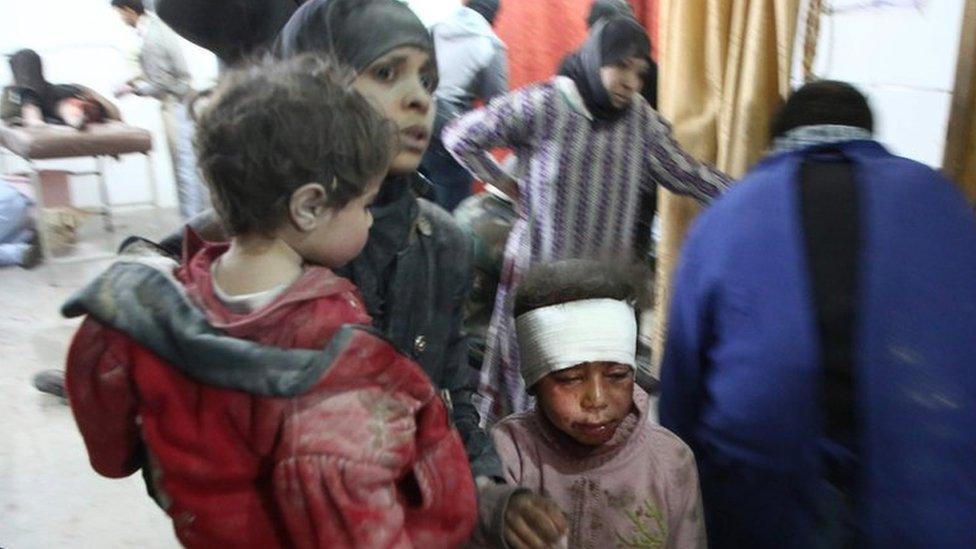Syria war: 'Deal struck' to take critically injured out of Douma
- Published
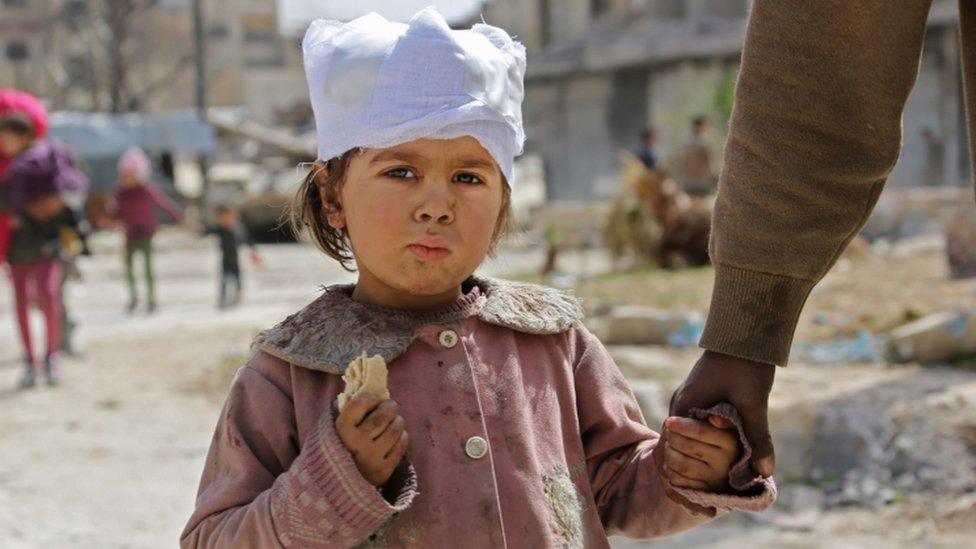
A deal has been reached to allow seriously injured people to leave the besieged Eastern Ghouta region
A deal has been reached to evacuate critically injured people from Douma, the last rebel-held town in Syria's Eastern Ghouta region, reports say.
The agreement follows negotiations between the rebel group Jaish al-Islam, civic leaders and Russia.
The wounded will be taken to Idlib, which is still in rebel hands.
What do we know about the deal?
The rebels in Douma have denied they are negotiating an evacuation deal for the tens of thousands of civilians still living there.
However, the wounded will be allowed to leave under an agreement made with the Russian military late on Saturday, Reuters news agency says.
The rebels hope the talks will secure them the right to remain in Douma under Moscow's protection.
"At least in heaven there's food": The children caught up in Eastern Ghouta air strikes
How many people have already left the Eastern Ghouta?
After six weeks of bombardment, thousands of rebels withdrew to the northern town of Idlib under a safe passage agreement.
The Syrian army has urged those still holding out in Douma to leave or face a full-scale offensive.
Tens of thousands of people have now left the suburbs east of Syria's capital, Damascus, which were once home to almost two million.
The Syrian army offers defeated rebels a choice between switching sides, or giving up their guns and relocating to government-controlled zones.
In a televised statement on Saturday, a military spokesman said the army had brought security to the capital, and safeguarded its links to the rest of the country.
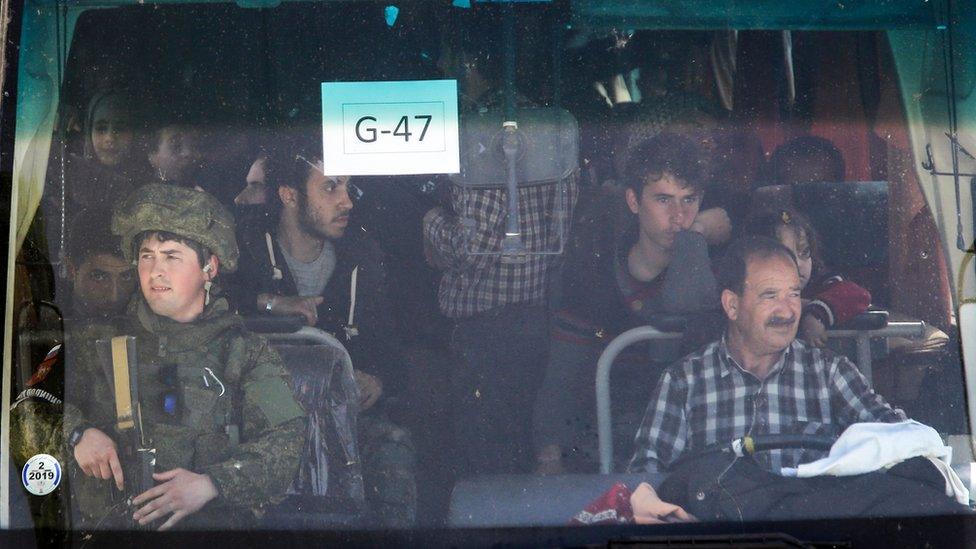
Russian military police have been supervising the evacuation of rebels and their families from the Eastern Ghouta
How has the stand-off played out?
The Eastern Ghouta has been besieged by the Syrian government since 2013. UN Secretary General Antonio Guterres described conditions there as "hell on earth".
Residents suffered intense bombardment by Russian-backed Syrian government forces in recent weeks.
Food, fuel and medical stocks are low, and the relentless air strikes have driven many to seek shelter underground, where they are largely without sanitation.
The rebels have accused the government-backed forces of using napalm, chlorine and incendiary bombs against civilian areas.
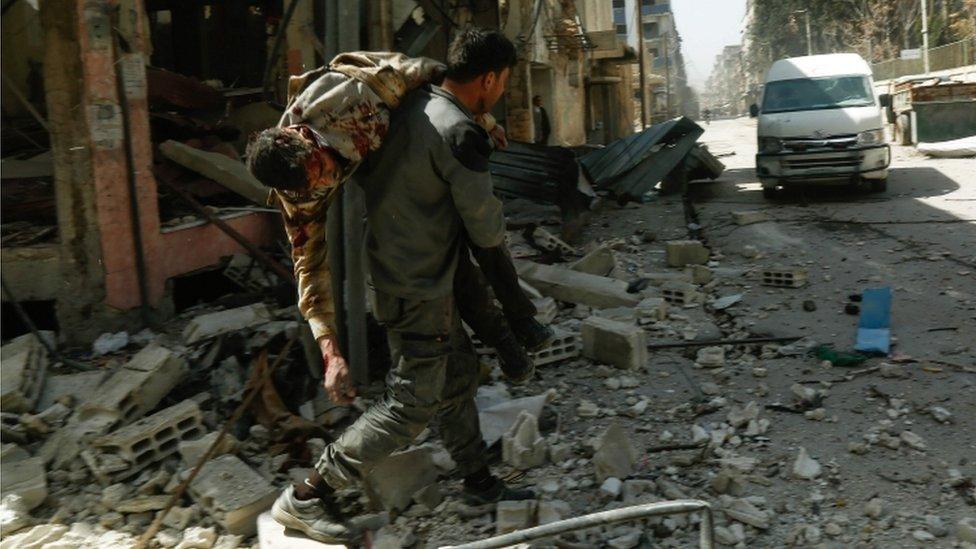
A member of the Syrian Civil Defence (known as the White Helmets) carries a wounded man after air strikes on Douma
UN war crimes experts are investigating several reports of rockets allegedly containing chlorine being fired this year.
The Ghouta assault has left more than 1,600 civilians dead and thousands more wounded, according to the UK-based Syrian Observatory for Human Rights.
Syria's military says it is trying to liberate the Eastern Ghouta from those it terms terrorists, and end their rocket attacks on the capital.
The rebels have fired their own shells at government-controlled areas of Damascus, causing dozens of casualties.
In January the Observatory said at least 60 people had been killed due to rebel bombardment since mid-November 2017.
- Published2 May 2023

- Published29 March 2018
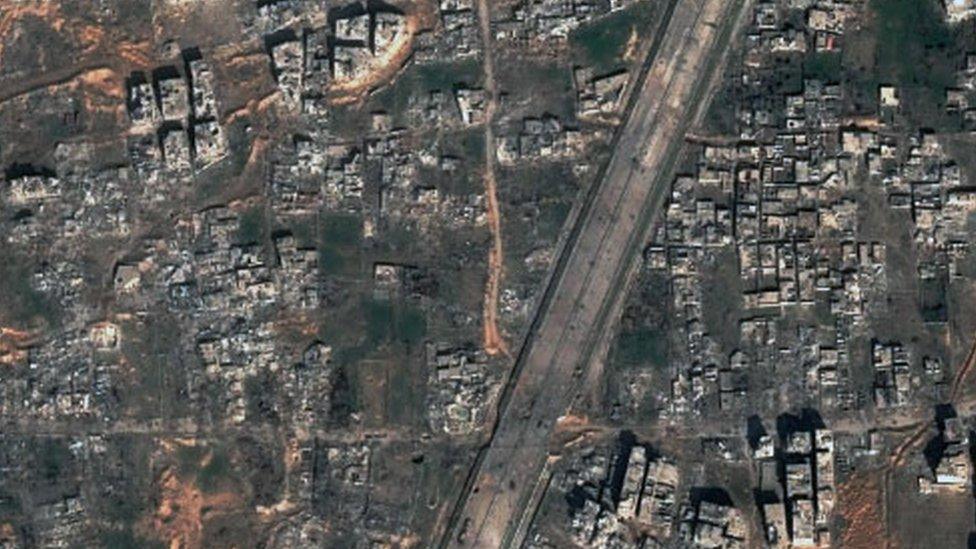
- Published28 March 2018
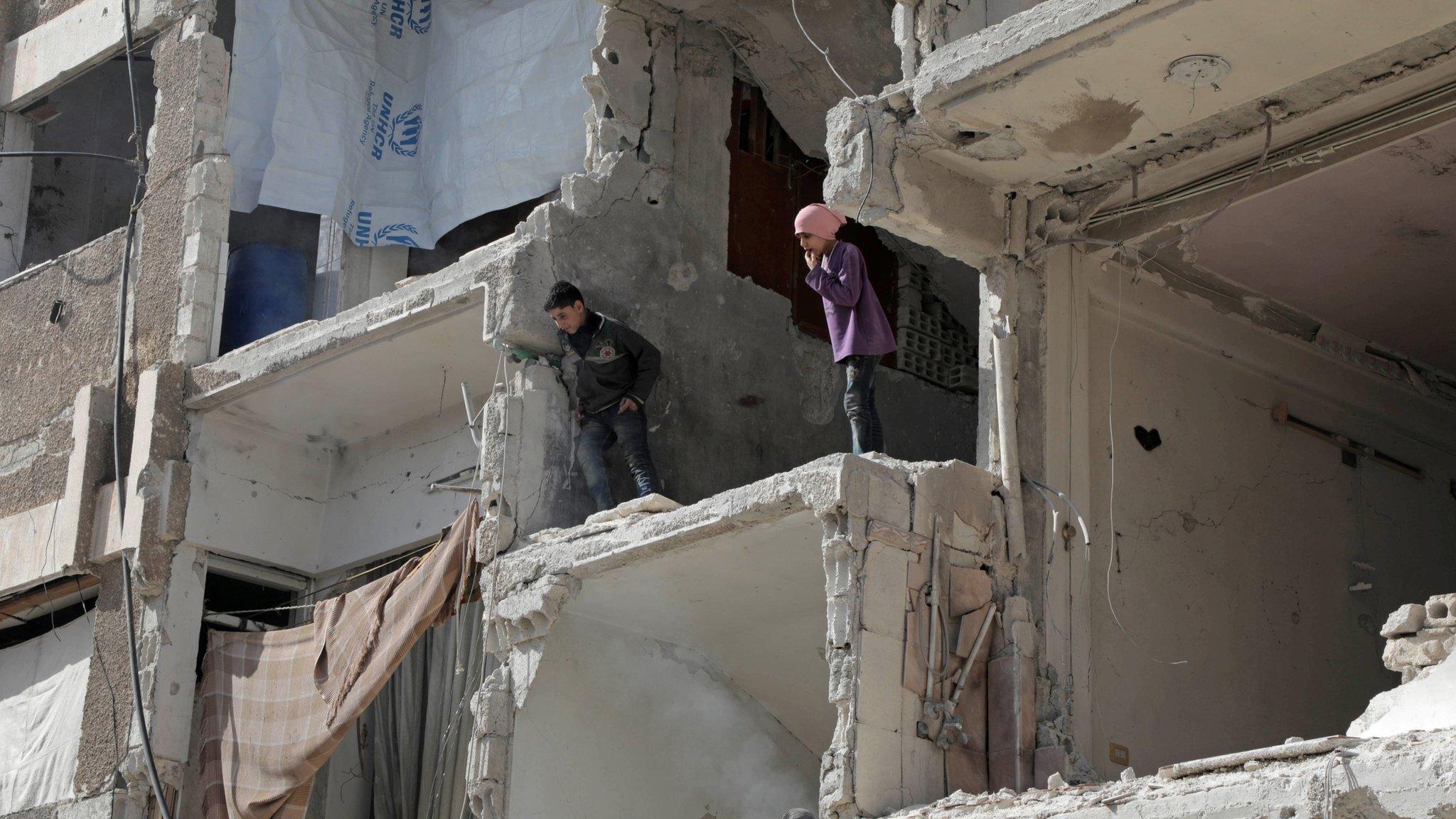
- Published28 March 2018
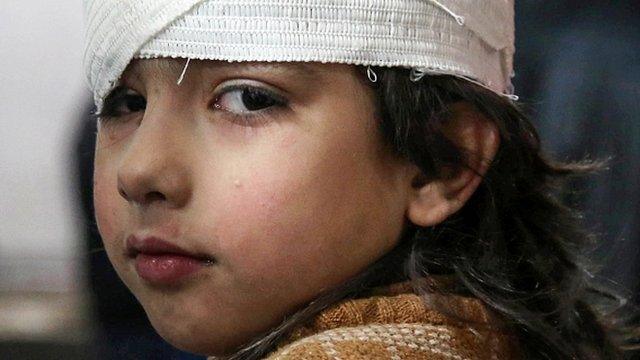
- Published23 March 2018
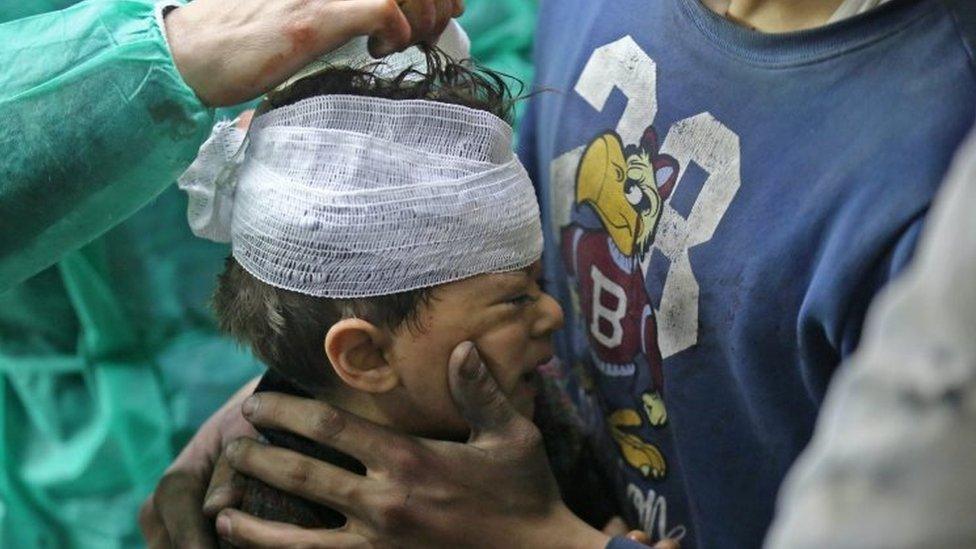
- Published22 March 2018
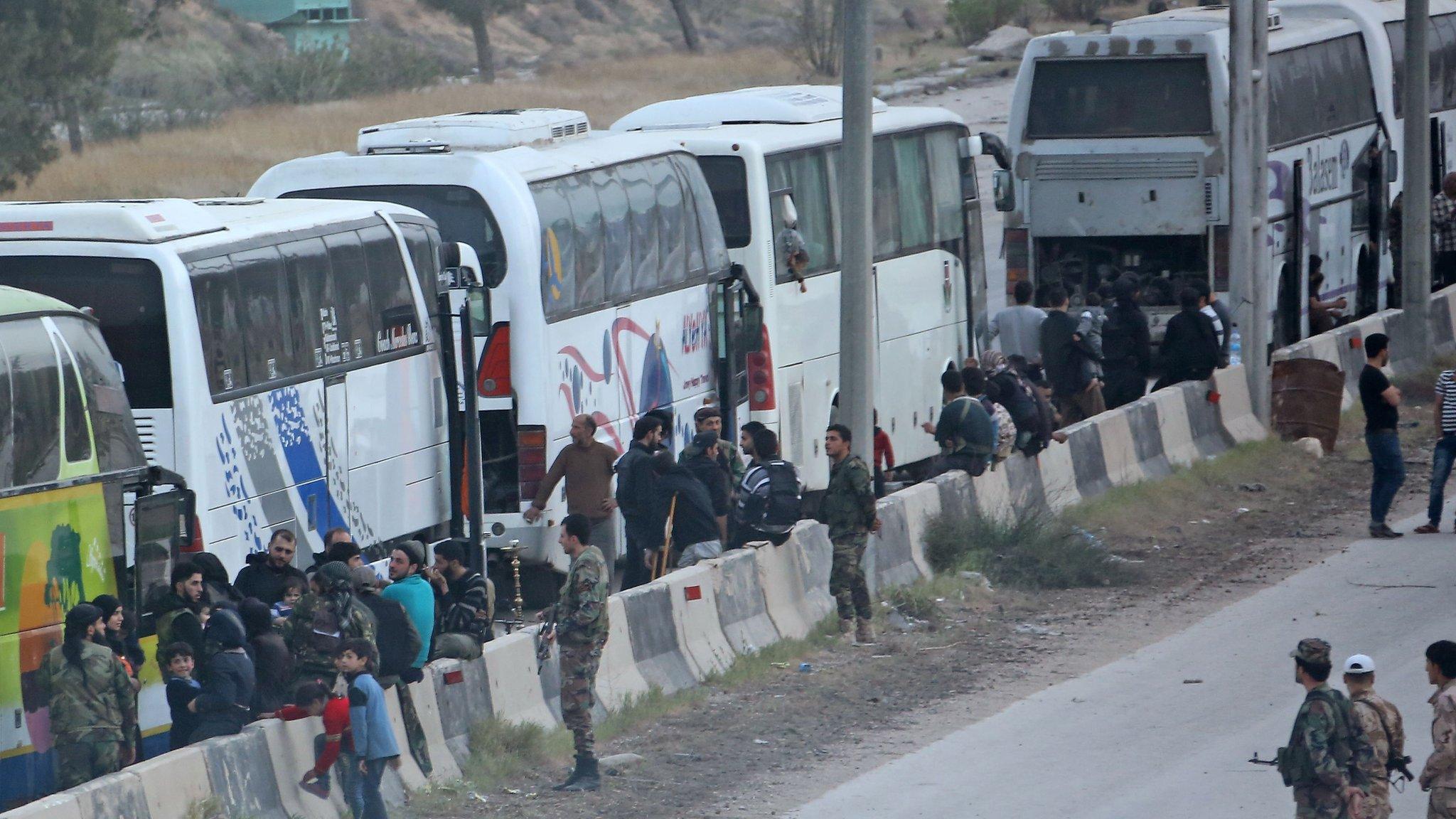
- Published17 March 2018
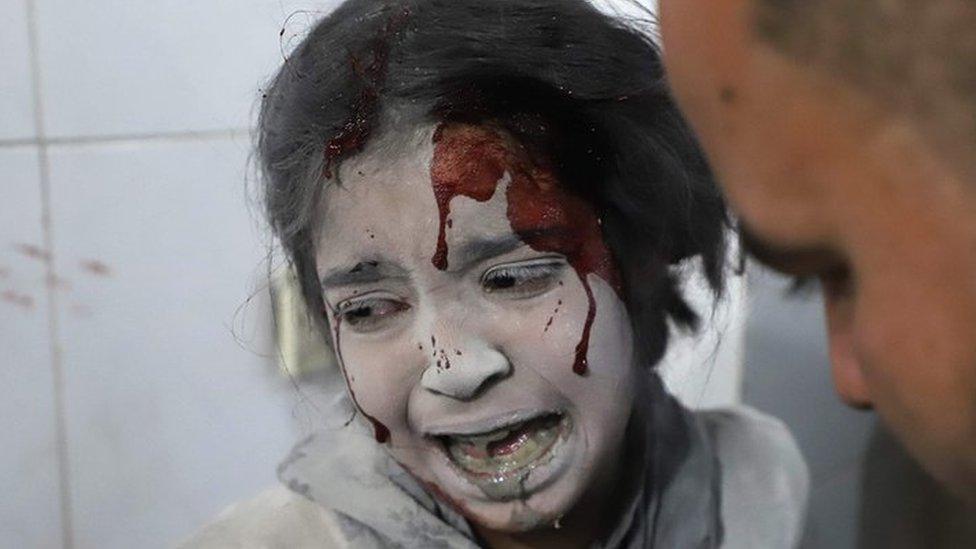
- Published16 March 2018
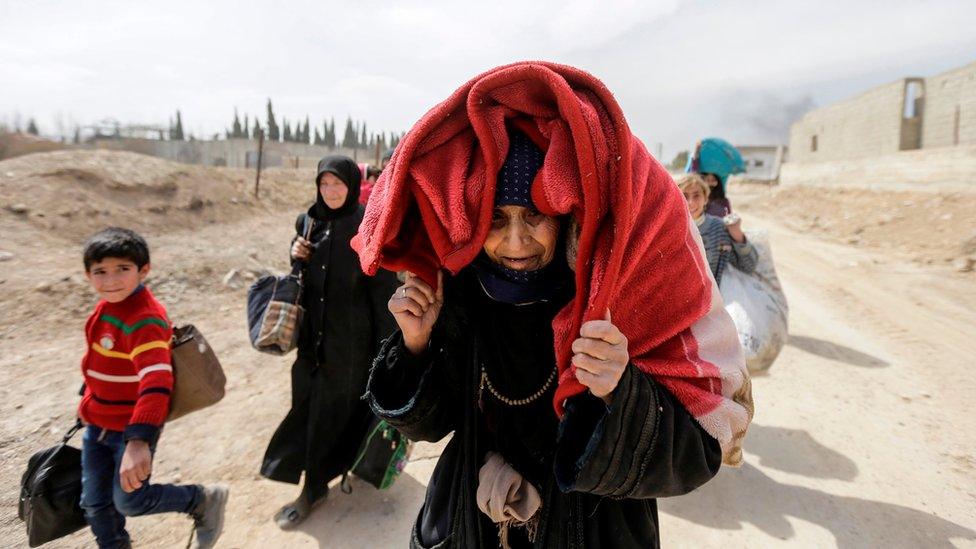
- Published15 March 2018
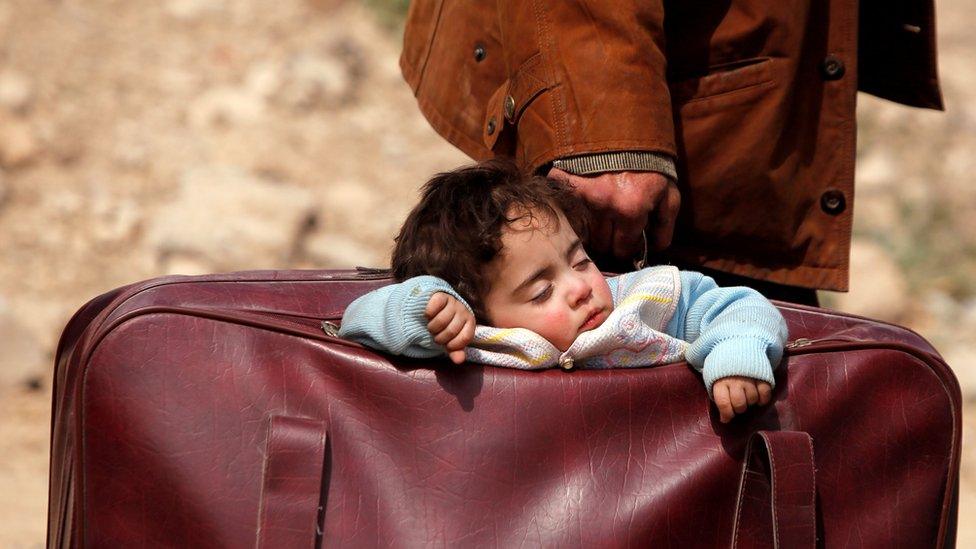
- Published22 February 2018
